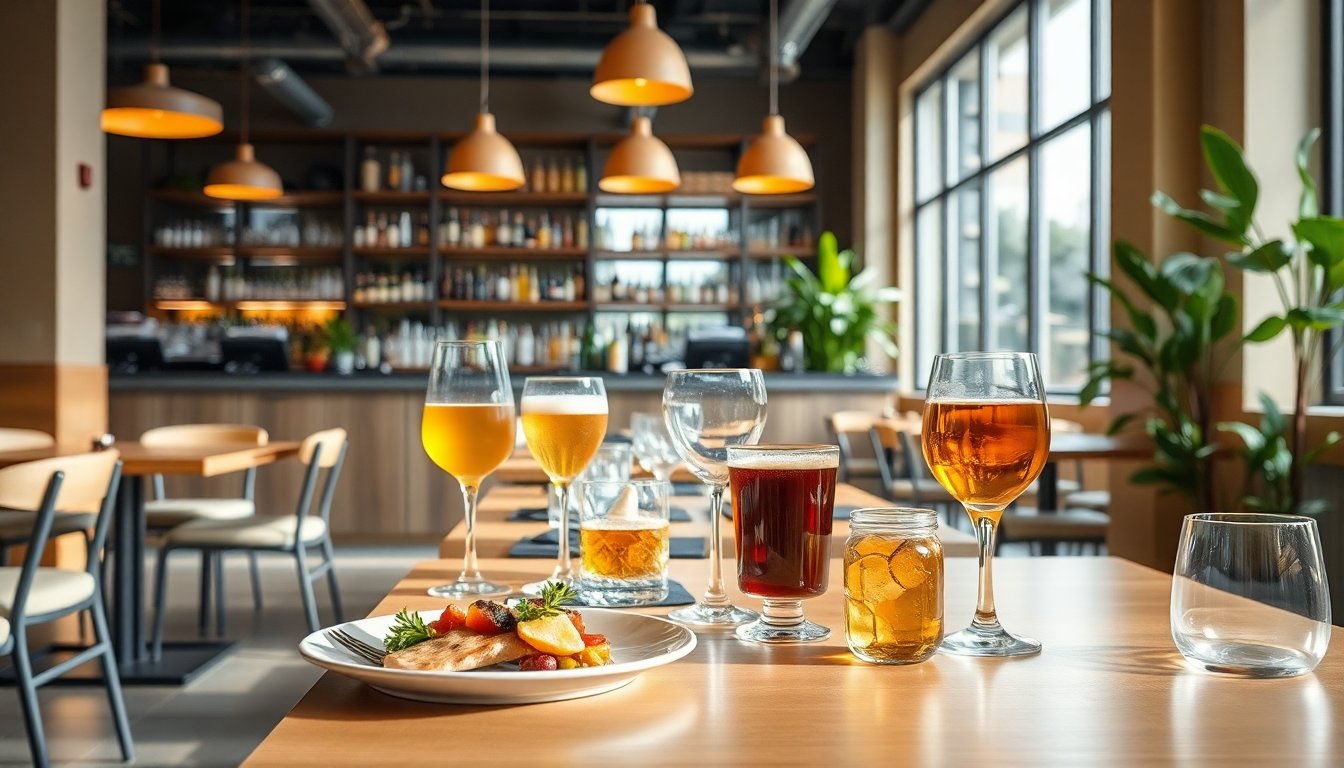Table of Contents
The restaurant industry is facing a significant transformation driven by the drinking habits of Generation Z. This demographic, born between 1997 and 2012, is redefining social experiences, particularly regarding alcohol consumption. Chef David Chang, known for his Michelin-starred restaurants, recently discussed this trend on a podcast, labeling it an existential threat to the dining sector. With many young Americans choosing to drink less, restaurant owners are compelled to reassess their business strategies and offerings.
In cities like Los Angeles, the trend is evident, as younger patrons frequent establishments but often skip alcoholic beverages altogether. This shift affects not only the ambiance of dining experiences but also poses a financial strain on restaurants that have long depended on alcohol sales as a substantial part of their revenue.
The sober trend among younger consumers
Recent statistics reveal a dramatic decrease in alcohol consumption among young adults in the U.S. According to a Gallup survey, only 50% of this age group reported consuming alcohol, down from 59% two years prior. This decline signifies a deeper cultural movement towards mindfulness and health consciousness. Many Gen Z individuals prioritize well-being over traditional drinking practices, with social media playing a pivotal role in this change.
Influence of social media on drinking choices
Platforms like Instagram and TikTok have become breeding grounds for new social norms. Influencers promote a sober-curious lifestyle, sharing experiences that celebrate sobriety rather than stigmatize it. The rise of hashtags such as #mindfuldrinking and #mocktailmovement underscores this generational shift, making it fashionable to enjoy non-alcoholic options. This cultural pivot encourages many to seek authentic experiences that foster connection without the need for inebriation.
Challenges for the restaurant industry
The implications for the restaurant sector are profound. Historically, alcohol sales have been a cornerstone of profitability, contributing upwards of 30% to total revenue. High-margin cocktails and wine have long served as essential income streams, allowing restaurants to balance rising operational costs. However, as Gen Z increasingly opts out of these traditional offerings, establishments face a pressing dilemma: how to maintain profitability in an environment where alcohol sales are waning.
Adapting beverage programs to meet new demands
In response to this shift, many restaurants are embracing innovation. The emergence of non-alcoholic beverage programs is reshaping menus, offering a variety of options such as mocktails, zero-proof spirits, and health-focused drinks like kombucha. These offerings are designed not just as alternatives but as sophisticated beverages crafted with the same attention to detail as traditional cocktails. Bartenders are evolving into mixologists of wellness, blending ingredients that promote health and vitality.
Furthermore, restaurants are reimagining their environments. The once-popular dimly lit bars are transitioning to brighter, more inviting spaces that encourage dialogue and connection. Concepts like brunch clubs and wellness-oriented dining experiences are emerging, reflecting Gen Z’s preference for intentional social interactions over typical nightlife.
Marketing strategies for the new dining landscape
As the landscape shifts, so too must marketing strategies. Traditional campaigns that focus on alcoholic beverages are being replaced by initiatives that emphasize community and inclusivity. Events such as sober socials, tea ceremonies, and mocktail-making workshops are becoming popular, aligning with the values of Generation Z. Collaborations with wellness brands and yoga brunches are also gaining traction as restaurants seek to create experiences that resonate with this audience.
Digital marketing is evolving to reflect the preferences of this generation. Gen Z is drawn to authentic messaging that highlights sustainability and mental health rather than flashy drink promotions. For hospitality marketers, the focus must be on crafting narratives that resonate with the values of a generation that prioritizes wellness and authenticity.
While some view Gen Z’s reduced alcohol consumption as a threat to the restaurant industry, it can also be seen as a chance for innovation and growth. By embracing these changes and adapting to the preferences of a new generation, restaurants can thrive in this evolving landscape. The shift towards sobriety is not a death knell for dining establishments; rather, it is an opportunity to redefine how we experience hospitality.


